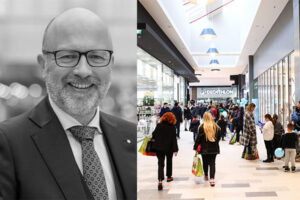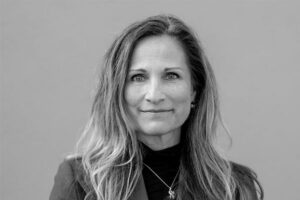ACROSS: INVESTER United Benefits was established in 2016. How is your company structured?
Franz Alexander Kollitsch: With regard to the year, INVESTER is a very young company. This is somewhat misleading in this regard in that it was merely the officialization at the time. Rather, it is a joint venture that has grown over some time. I have already been working with Erwin Krause (note: also co-founder of INVESTER) for 15 years.
The reason why INVESTER was established was firstly to improve the external communication. Secondly, we want to make optimum use of the team synergies from both companies. This is now in full swing. INVESTER sees itself as an integrated service group focusing on project initiation, project development and asset management. We rarely buy something that is already fully finished; instead, we look for unique projects where we recognize exciting potential.
ACROSS: What are your current projects?
Kollitsch: In the retail sector, we are focusing strongly on the Parndorf Fashion Outlet. As you know, you have to have staying power with retail projects. Things rarely work from the outset. Specialist stores are arguably the exception. If a specialist store does not work on the first day, it will not work later either. All other retail projects usually need a start-up phase until they are accepted by the customer. We have been able to achieve a great deal in Parndorf up to now.
ACROSS: What do you see as the benefits of retail real estate in Austria? How many properties does a saturated market like the red-white-red one still need?
Kollitsch: At the end of the day, we are producing for institutional investors. These investors need different asset categories. A residential project is the lowest category when it comes to risk profile. Because people always need to live somewhere. Because of the low rents, the return is also correspondingly low. Retail real estate has more potential in this regard. If we, for instance, look at Parndorf – there we are moving into the center in the overall agglomeration with the new parking spaces – we are, however, still far away from McArthurGlen when it comes to space density. We therefore have the potential to easily double there.
ACROSS: How is the collaboration with McArthurGlen in Parndorf?
Thomas Maria Seikmann: Very good. We have collaborations in the major events such as Late Night Shopping. We have a joint info point and collaborate with one another when it comes to security. Nevertheless, it is of course a competition situation with the tenants. As we are currently upgrading, the tenant at the same location now has two options. The frequency at the location is high. That is our potential. We therefore have our own retail managers who help existing tenants to generate more turnover. This means for us that these tenants pay more rent. Then we are both happy.
Kollitsch: The collaboration with McArthurGlen has been developing positively. Over the years, we have found a good climate for discussion. Ultimately, we reached a cooperation agreement regarding the traffic routes and the parking guidance system. Anything else would have irritated the customer. The next step involved a joint voucher system. Customers see Parndorf as a retail world and want to be able to redeem their vouchers everywhere.
ACROSS: Parndorf is seen as one of the best outlet locations in Europe. Has the potential been exploited or is there still some room left here?
Kollitsch: With shopping centers, the spaces are between 50,000 and 150,000 sq meters. The outlet spaces are much smaller. There may still be room for 5,000 to 10,000 sq m in Parndorf at some time, although that constitutes a lot of space for an outlet. But I believe that something else is happening here at the moment. In the outer belt of these outlet destinations, complementary usages are developing: more food service facilities, a cinema, a furniture store, a second hotel and an amusement park. We will of course benefit from that.
ACROSS: Secondary usages such as a hotel and amusement park will therefore additionally enhance Parndorf and increase frequency?
Kollitsch: Yes. In light of this, we hope very much that the new Austrian federal government will tackle the subject of store closing times. After all, in Parndorf, we are in a tourism region. This means that Sunday opening would fundamentally be a topic for us. Parndorf is the economic engine of Burgenland. Tourism lives from the outlet center and vice versa. If the shops in Vienna city center were also able to open up on Sunday, our chances would also rise.
ACROSS: With how much more turnover would the Parndorf Fashion Outlet benefit from Sunday opening?
Kollitsch: It would undoubtedly mean a two-digit growth in turnover. I would estimate up to 20 per cent.
Seikmann: With regard to Sunday opening, we are pleased to have the Freeport Fashion Outlet in the Czech Republic in our portfolio. We can open up on Sundays there. More than 50 per cent of our customers come from Austria. That is also seen by the brands. The response from the tenants is huge. For instance, Guess recently opened its most modern outlet store in Europe in the Freeport. Ralph Lauren will also be coming.
Kollitsch: We purchased the Freeport Fashion Outlet in October 2015 to round off our portfolio. The logic behind that was to lift the location up to a better level of quality. That is precisely what makes us stand out. We try to buy projects for which others do not yet see their opportunities at this point in time. That is the skill. We generated the most value with this property with regard to percentage increase in value. We are now delighted about Burger King, Starbucks and KFC as tenants. As far as I know, there is no single location south of Prague that has that.
ACROSS: Is there still potential at Freeport with regard to the tenants?
Seikmann: The center was fully leased from the outset. There is of course always potential for new brands. Nike and Adidas have just themselves made huge investments in the refit of their shops. That is a great upgrade and shows the trust in the location.
ACROSS: With regard to retail activities: Apart from Freeport and Parndorf – what is going on with the former Ekazent portfolio, as well as with the Ekazent Hietzing that you acquired some time ago?
Seikmann: I would like to go into a bit more detail here. Hietzing was an extra position that was acquired separately and thus is not part of the joint venture portfolio with UBM. The remaining joint venture portfolio itself consists of 29 individual properties that are jointly managed. It is also important that we also acquired the traditional brand “Ekazent” alone and subjected it to a complete market relaunch. We thus now have the opportunity of combining all our activities of the management of retail properties professionally under one brand.
ACROSS: How is the joint venture going?
Kollitsch: This joint venture is working sensationally. Particularly when two such large companies work together, this is often not such a happy experience. But that is very much the case here. We are making very good progress.
ACROSS: Does that mean that you will be increasingly offering center management services on the market?
Kollitsch: That is not ruled out. But it is not our central focus. Our central focus is to continue to manage our own managed properties with this component. In addition that we – in the event that we dispose of properties – offer to the buyers that we continue to provide these services. There we assume that there is interest. Because if somebody buys an outlet center, the first question has to be who operates it for them. This is a value element particularly with management-intensive real estate. If I were to say to a German insurance company, here you have the keys for Parndorf and brief instructions for operation and you can take it over tomorrow, they would counter that they could not buy it.
ACROSS: What are the medium and long-term goals at the Ekazent sites?
Kollitsch: We bought the package and have a business plan that works superbly with the existing cash flow. Otherwise, we would not have been able to finance that. We are now at a crossroads. There are two possible solutions: Either an upgrading of the centers in that we carry out renovations where necessary, draw up new lease contracts and relaunch that on the market as a retail package. After all, we are not portfolio holders. Or we create additional residential space at individual sites. The discussion process for this is currently running in parallel with the city of Vienna.
ACROSS: Do you want to grow in the outlet center sector?
Seikmann: Only if it involves unique or non-vulnerable locations.
Kollitsch: With the outlets, our strategy is that we only take a look at something if something is already in our portfolio or if we wish to integrate it into a portfolio, as was the case in Parndorf. It is entirely underestimated what commercial strength is required to generate a location from nothing.
ACROSS: Are shopping centers also a topic in the things that you are looking out for?
Seikmann: If we see potential.
Kollitsch: Thanks to our expertise, we have good possibilities of evaluation, particularly with regard to the purchase phase.
ACROSS: What does your strategy for growth look like?
Kollitsch: The INVESTER Group is driven by opportunity. This means we observe what opportunities result. In the process, our focus tends to be on larger topics; either larger packages or larger individual projects. There, we can control the quantity of competitors a bit better. For us it is also about how an end investor will evaluate this special asset at the end of the day. It is pointless for me to build specialist stores in Romania or in Hungary while every investor states that it does not wish to invest in Romania or Hungary. We thus keep our eyes open everywhere: in residential construction, hotel and retail.
Follow @across_magazine on Twitter and @across.magazine.europe on Facebook, sign up for our ACROSS newsletter and subscribe to ACROSS Magazine.





